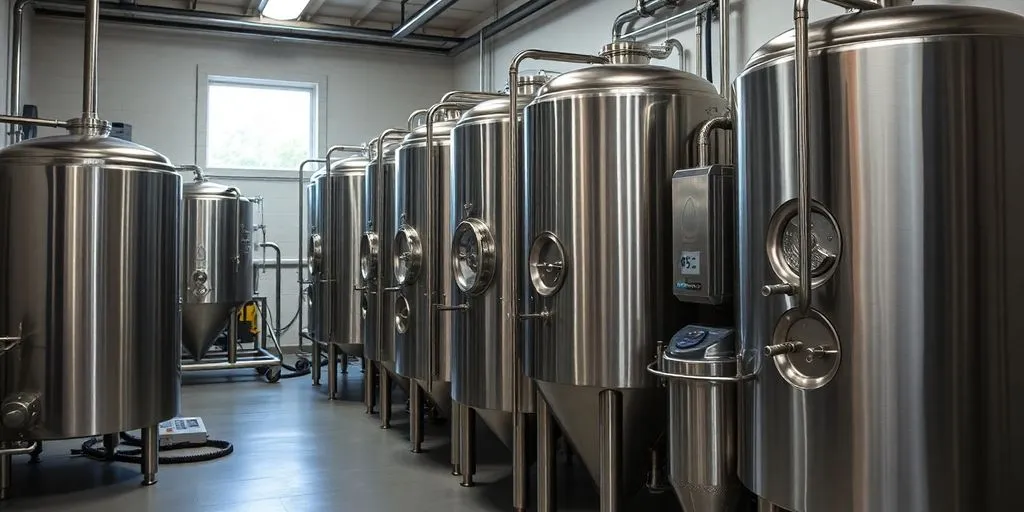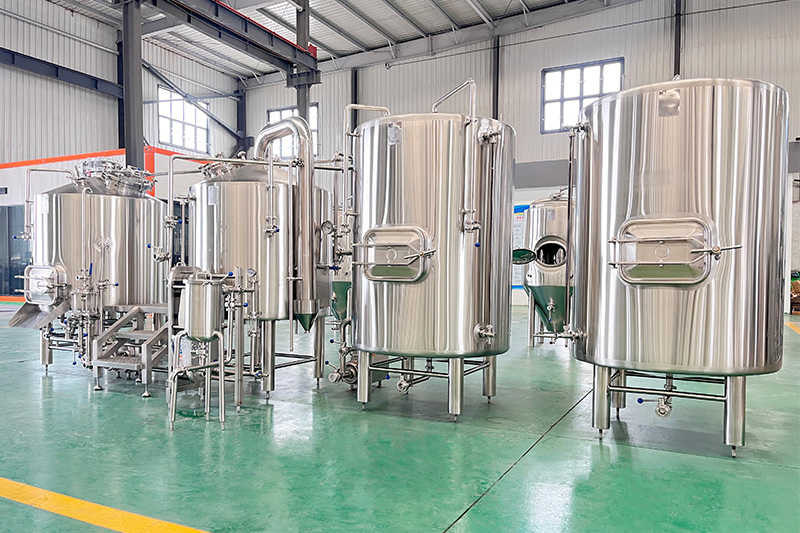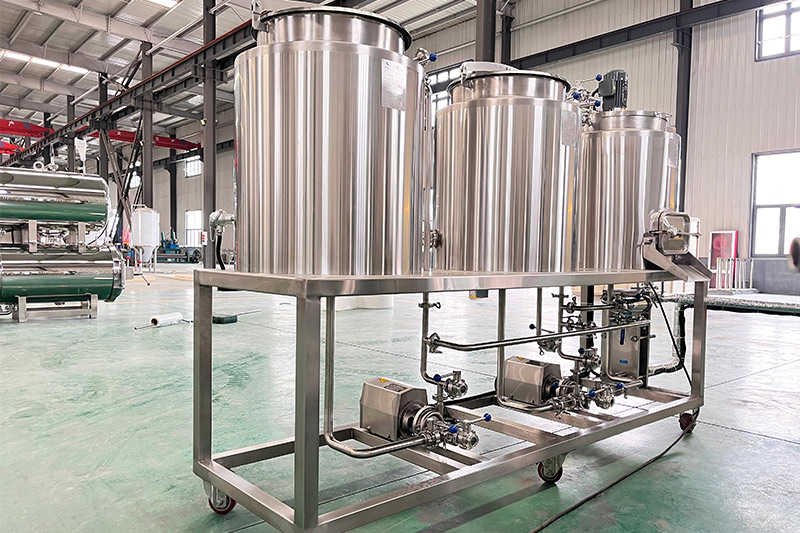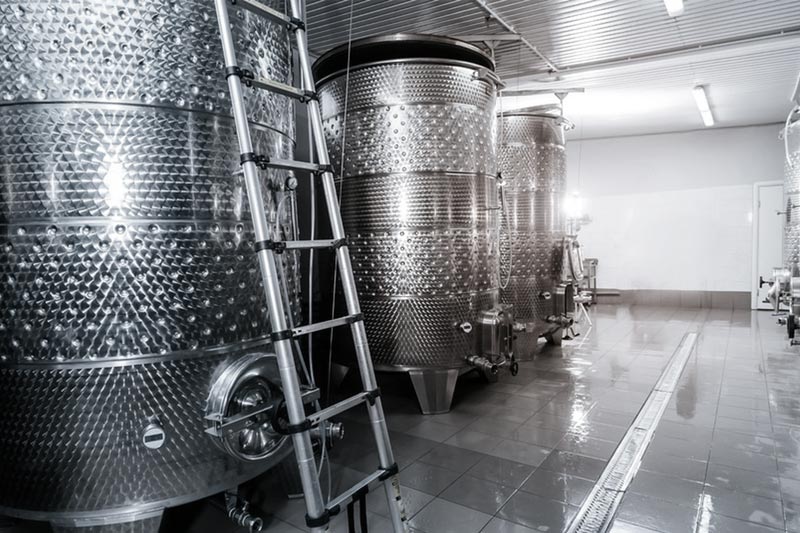Unlock the secrets of kombucha brewing and take your production to the next level with the best commercial kombucha brewing equipment. Whether you’re a seasoned brewery owner or an aspiring kombucha entrepreneur, this guide will provide invaluable insights into the equipment and processes that will help you craft delicious, high-quality kombucha.

What is Kombucha Brewing and Why is it Popular?
Kombucha brewing is the process of fermenting sweetened tea using a symbiotic culture of bacteria and yeast (SCOBY). This ancient practice has gained immense popularity due to the beverage’s potential health benefits and unique flavor profile.
The Rise of Kombucha
- Health Consciousness: Consumers are seeking healthier alternatives to sugary sodas.
- Probiotic Benefits: Kombucha is rich in probiotics, which can aid digestion.
- Artisanal Appeal: Craft kombucha breweries offer a variety of flavors, attracting a diverse audience.
From my experience, brewing kombucha allows for creativity while providing a product that resonates with today’s health trends.
Why Invest in Commercial Kombucha Brewing Equipment?
Scaling up production requires investing in proper kombucha brewing equipment. Here’s why it’s crucial:
Benefits of Commercial Equipment
- Consistency: Ensures each batch meets quality standards.
- Efficiency: Speeds up the brew process, increasing output.
- Compliance: Meets health and safety regulations.
By utilizing high-quality commercial kombucha brewing equipment, you can produce delicious kombucha with consistent flavor and quality.
Essential Equipment Needed for Kombucha Brewing
To start your kombucha brewing journey, you’ll need specific equipment and supplies.
Key Pieces of Brewing Equipment
- Brewing Kettle: For boiling water and dissolving sugar.
- Fermentation Tank: Where the magic happens.
- Kombucha Fermenter: Specialized tanks designed for kombucha.
- Stainless Steel Vessels: Durable and easy to clean.
- Cooling Systems: Maintain optimal temperatures.
Here’s a simple table summarizing the essential equipment:
EquipmentPurposeBrewing KettleBoil water and mix ingredientsFermentation TankPrimary fermentation processKombucha FermenterSpecialized fermentingStainless Steel VesselsStorage and secondary fermentationCooling SystemsTemperature control
Investing in the right kombucha brewing equipment sets the foundation for a successful brewing operation.
How Does a Kombucha Fermentation Tank Work?
The fermentation tank is a critical component in kombucha brewing. It provides a controlled environment for fermentation.
The Fermentation Process
- Primary Fermentation: Sweetened tea is combined with SCOBY and allowed to ferment.
- Temperature Control: Optimal fermentation occurs between 75-85°F (24-29°C).
- Duration: Typically takes 7-14 days, depending on desired taste.
Kombucha fermentation tanks are designed to maintain consistent conditions, ensuring the kombucha fermentation process yields the best results.
The Benefits of Using Stainless Steel in Kombucha Brewing
Stainless steel is the material of choice for many brewers.
Advantages of Stainless Steel
- Durability: Resistant to corrosion and wear.
- Hygiene: Non-porous surface prevents bacteria growth.
- Ease of Cleaning: Simplifies maintenance.
Using stainless steel in your kombucha brewing equipment enhances the quality and safety of your brew.
What is a Kombucha Brewing Skid and Do You Need One?
A kombucha brewing skid is a modular system that integrates various brewing components.
Features of a Brewing Skid
- Compact Design: Saves space in your production facility.
- Integrated Systems: Combines kettles, fermenters, and cooling units.
- Scalability: Easily expandable as your business grows.
Opting for a kombucha brewing skid can streamline your operations and improve efficiency.

How to Choose the Right Kombucha Fermenter
Selecting the appropriate kombucha fermenter is crucial.
Considerations When Choosing a Fermenter
- Capacity: Align with your production needs.
- Material: Prefer stainless steel for durability.
- Design Features:
- Cooling Jackets: For temperature control.
- Manways: Easy access for cleaning and inspection.
- Ports and Valves: Facilitate sampling and transfers.
Our Kombucha Fermenters are meticulously designed to meet the unique requirements of kombucha production.
Understanding Carbonation in Kombucha Production
Carbonation adds the characteristic fizz to kombucha.
Carbonation Process
- Natural Carbonation: Occurs during secondary fermentation in a closed vessel.
- Forced Carbonation: Injecting CO₂ into the finished product.
- Equipment Needed:
- Brite Tanks: Used for carbonation and clarification.
- Carbonation Stones: Aid in dissolving CO₂ evenly.
Proper carbonation enhances the flavor profile and consumer appeal of your commercial kombucha.
Maintaining Quality with Proper Equipment and Supplies
Consistency is key in kombucha brewing.
Maintaining High Standards
- Quality Equipment: Invest in high-quality equipment that meets international standards.
- Sanitation: Regular cleaning and sterilization prevent contamination.
- Monitoring: Use instruments to track pH, temperature, and sugar levels.
Our Commercial Kombucha Brewing Equipment is designed and fabricated using ancient brewing wisdom and innovative technology, ensuring efficiency and quality.
FAQs
Answer: Primary fermentation typically takes 7-14 days, while secondary fermentation for carbonation can add another 1-3 weeks, depending on desired flavor and fizz.
Lorem ipsum dolor sit amet, consectetur adipiscing elit, sed do eiusmod tempor incididunt ut labore et dolore magna aliqua. Ut enim ad minim veniam, quis nostrud exercitation ullamco laboris nisi ut aliquip ex ea commodo consequat.
Answer: A jacketed fermentation tank allows for precise temperature control by circulating coolant or heating fluid, essential for maintaining consistent fermentation conditions.
Answer: Extremely important. Proper sanitation prevents unwanted bacteria and mold growth, ensuring the safety and quality of your kombucha.
Answer: If you desire a fizzy kombucha, incorporating a carbonation system like a brite tank is essential for achieving consistent and controlled carbonation levels.
Answer: You can explore our range of high-quality Kombucha Brewing Equipment designed to meet the needs of commercial kombucha brewers.
Conclusion
Embarking on a kombucha brewing business is an exciting journey that combines tradition with innovation. Investing in the right kombucha brewing equipment is crucial for producing a delicious kombucha flavor profile that stands out in the market. Our manufacturing plant specializes in providing top-of-the-line equipment, ensuring your brewing process is efficient and your product is of the highest quality. Contact us today to explore how we can support your kombucha brewing endeavors.

Key Takeaways
- Invest in Quality Equipment: Essential for consistent and efficient production.
- Understand the Fermentation Process: Key to crafting great kombucha.
- Use Stainless Steel: Enhances durability and hygiene.
- Consider a Brewing Skid: Streamlines operations and saves space.
- Maintain Sanitation: Critical for product safety and quality.
- Partner with Experts: Our team is here to support your brewing journey.
Ready to elevate your kombucha brewing? Contact us to discover the perfect equipment solutions for your brewery!

